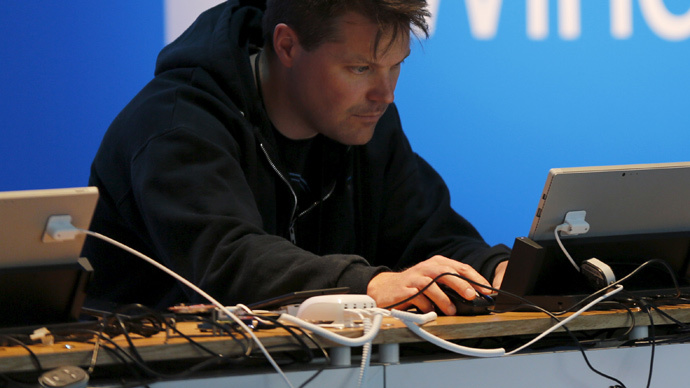Police granted personal data access 26 times every hour, study reveals

British police officers are given access to communications data approximately 643 times every day, according to figures revealed in a new study.
Communications data, which includes the location and personal details of any text, email, phone call or web search, have become an integral part of police crime investigations with 733,237 requests for data made between 2012 and 2014.
The report, by transparency advocacy group Big Brother Watch, found that 96 percent of requests made by police were internally approved, with just four percent being refused.
So of the 670 requests made each day, 643 are granted – a total of 26 an hour, the report notes.
Big Brother Watch adds that the 25 percent so-called ‘capability gap’ – the difference between the amount of data created and the ability of the police to access it – is “overstated.”
“Claims of a 25-percent capability gap – the gap between the amount of communications data created and the ability for the police to access it – are therefore clearly overstated. It is clear from the reports’ findings that disparity exists amongst police forces on what is considered necessary and proportionate for a request for communications data and why a refusal for access is given,” the report states.
READ MORE: ‘Spying on everyone’: Tories to introduce wider-than-expected surveillance powers
The group is calling for greater police transparency about which data are being accessed and the type of crime the data is being used to solve.
They also urge authorities to publish reports “detailing how requests are approved” and to ensure judicial authority is needed to finalize requests.
“New definitions for communications data should be adopted,” the report states. “Should the government adopt these recommendations, the general public will be better informed about how their communications can be obtained, analyzed and used. It will also provide much needed clarity on how police and other organizations work with the technology companies to access this information.”
“As a result of these findings, Big Brother Watch remains concerned about the excessive access and use of communications data,” the report adds.
Chief Executive Renate Samson said: “Modern policing and the use of technology in investigating crime should be more transparent.
“We are repeatedly told that communications data plays a significant role in modern policing, yet the reports' findings pose serious questions about the internal approval process which differs from force to force.”
The new Conservative administration announced plans last week to pass the Investigatory Powers Bill – dubbed the Snoopers’ Charter – which will “provide the police and intelligence agencies with the tools to keep you and your family safe.”
The bill will give police powers to access even more wide-ranging communications data, and will replace the 2013 Communications Data Bill.












